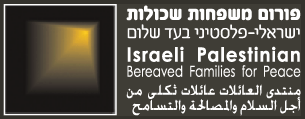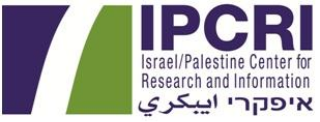
The Israeli–Palestinian conflict is one of the world's most enduring conflicts, beginning in the mid-20th century. Various attempts have been made to resolve the conflict as part of the Israeli–Palestinian peace process, alongside other efforts to resolve the broader Arab–Israeli conflict. Public declarations of claims to a Jewish homeland in Palestine, including the First Zionist Congress of 1897 and the Balfour Declaration of 1917, created early tensions in the region. Following World War I, the Mandate for Palestine included a binding obligation for the "establishment in Palestine of a national home for the Jewish people". Tensions grew into open sectarian conflict between Jews and Arabs. The 1947 United Nations Partition Plan for Palestine was never implemented and provoked the 1947–1949 Palestine War. The current Israeli-Palestinian status quo began following Israeli military occupation of the Palestinian territories in the 1967 Six-Day War.

Arab–Israeli peace projects are projects to promote peace and understanding between the Arab League and Israel in different spheres. These are part of a broader attempt at a peace process between Palestinians and Israelis. Sponsors of such projects can be found both in Israel and Palestine.

The Geneva Initiative, also known as the Geneva Accord, is a draft Permanent Status Agreement to end the Israeli–Palestinian conflict, based on previous official negotiations, international resolutions, the Quartet Roadmap, the Clinton Parameters, and the Arab Peace Initiative. The document was finished on 12 October 2003.

Gush Shalom is an Israeli peace activism group founded by Uri Avnery in 1993. Avnery–a former journalist, Irgun and Knesset member–also led the organization till his death in 2018. The left-wing organization has been involved in several Israeli controversies, such as sending a "Relief Convoy to Gaza" while it is under Hamas administration, and the mainstream Israeli media has described it, on occasion, as "radical" and "extreme". In 2010, the American Friends Service Committee has described the group as "one of Israel's most influential peace organizations".
New Jewish Agenda (NJA) was a multi-issue membership organization active in the United States between 1980 and 1992 and made up of about 50 local chapters. NJA's slogan was "a Jewish voice among progressives and a progressive voice among Jews." New Jewish Agenda demonstrated commitment to participatory (grassroots) democracy and civil rights for all people, especially those marginalized within the mainstream Jewish community. NJA was most controversial for its stances on the rights of Palestinians and Lesbian and Gay Jews.
Sabeel Ecumenical Liberation Theology Center is a Christian liberation theology organization based in Jerusalem. It was founded by Palestinian Anglican priest, Rev. Naim Ateek, the former Canon of St. George’s Cathedral in Jerusalem.

Occupation 101: Voice of the Silenced Majority is a 2006 documentary film on the Israeli–Palestinian conflict directed by Sufyan Omeish and Abdallah Omeish, and narrated by Alison Weir, founder of If Americans Knew. The film focuses on the effects of the Israeli occupation of the West Bank and Gaza Strip, and discusses events from the rise of Zionism to the Second Intifada and Israel's unilateral disengagement plan, presenting its perspective through dozens of interviews, questioning the nature of Israeli–American relations—in particular, the Israeli military occupation of the West Bank and Gaza, and the ethics of US monetary involvement. Occupation 101 includes interviews with mostly American and Israeli scholars, religious leaders, humanitarian workers, and NGO representatives—more than half of whom are Jewish—who are critical of the injustices and human rights abuses stemming from Israeli policy in the West Bank, East Jerusalem, and Gaza.
Combatants for Peace is an Israeli-Palestinian NGO and an egalitarian, bi-national, grassroots movement committed to non-violent action against the “Israeli occupation and all forms of violence” in Israel and the Palestinian territories.

Ruchama Marton is a psychotherapist, psychiatrist, and feminist, and the founder of Physicians for Human Rights-Israel.

The Parents Circle-Families Forum (PCFF) is a grassroots organization of Palestinian and Israeli families who have lost immediate family members due to the conflict. The PCFF operates under the principle that a process of reconciliation is a prerequisite for achieving a sustained peace. The PCFF is also known as Israeli Palestinian Bereaved Families for Reconciliation and Peace and as Bereaved Families Supporting Peace, Reconciliation, and Tolerance.

IPCRI - Israel/Palestine Center for Research and Information is a joint Israeli/Palestinian NGO and public policy think tank based in Jerusalem working towards building partnerships in Israel/Palestine. Under shared Israeli-Palestinian leadership, IPCRI carries out research and projects in various fields from economic development to environmental sustainability. IPCRI also facilitates public outreach and track two negotiations between Israelis and Palestinians.

The Coalition of Women for Peace is an umbrella organization of women's groups in Israel, established in November 2000. It describes itself as "a feminist organization against the occupation of Palestine and for a just peace.". CWP says that it is "committed to ending the occupation and creating a more just society, while enhancing women’s inclusion and participation in the public discourse".
Ta'ayush is a grassroots volunteer organization established in the fall of 2000 by a joint network of Palestinians and Israelis to counter the nationalist reactions aroused by the Al-Aqsa Intifada. It describes itself as "a grassroots movement of Arabs and Jews working to break down the walls of racism and segregation by constructing a true Arab-Jewish partnership. Together we strive for a future of equality, justice and peace through concrete, daily, non-violent actions of solidarity to end the Israeli occupation of the Palestinian territories and to achieve full civil equality for all."

Machsom Watch, or Checkpoint Watch, is a group of Israeli women who monitor and document the conduct of soldiers and policemen at checkpoints in the West Bank. Its members also observe and document the procedures in military courts, and aid Palestinians crossing through IDF checkpoints. The self described "politically pluralistic" human rights organization is composed entirely of Israeli women, who tend to have a "liberal or leftist background". The word machsom is Hebrew for "checkpoint," referring to Israeli Defense Forces checkpoints which control movement between different parts of the West Bank and between the West Bank and Israel.

The two-state solution to the Israeli–Palestinian conflict envisions an independent State of Palestine alongside the State of Israel, west of the Jordan River. The boundary between the two states is still subject to dispute and negotiation, with Palestinian and Arab leadership insisting on the "1967 borders", which is not accepted by Israel. The territory of the former Mandate Palestine, which did not form part of the Palestinian State, would continue to be part of Israel.
United Nations Security Council Resolution 2334 was adopted on 23 December 2016. It concerns the Israeli settlements in "Palestinian territories occupied since 1967, including East Jerusalem". The resolution passed in a 14–0 vote by members of the United Nations Security Council (UNSC). Four members with United Nations Security Council veto power voted for the resolution, while the United States abstained.

Haya Shalom is a lesbian feminist and human rights activist. She graduated from Hebrew University in Jerusalem in History Studies. Shalom was nominated among 1000 women for The Nobel Peace Prize. She is of Sephardic extraction.
The Jerusalem Center for Women(JCW) is a feminist organization, established in 1994 as a part of a collaborative feminist effort with Bat Shalom known as the Jerusalem Link. The Jerusalem Center for Women aims to reduce hostilities between Palestine and Israel, as well as advocacy for women's rights in both areas. Most of the tactics utilized by this organization, include advocacy and workshops for community involvement, in addition to voice therapy sessions. The group receives support through international funding and attention.

Gabriela "Gaby" Lasky Schutz is an Israeli politician, attorney, feminist, human rights activist, and social activist. From 2021 until 2022 she served as a member of the Knesset representing Meretz. She was a member of the Tel Aviv city council between 2013 and 2018, representing Meretz, and was the secretary general of the Israeli peace organization Peace Now. As a human rights attorney, Lasky documents and responds to cases of torture, false imprisonment, and police brutality within Israel, Gaza, and the West Bank.

Hagar Rublev, also Roublev, (1954–2000) was an Israeli peace activist and lesbian feminist. In January 1988, she was an inspiring co-founder of the pacifist movement Women in Black which was created to protest violations of human rights by Israeli soldiers in the new Palestinian territories, occupied since 1967. Rublev later helped to create Bat Shalom, a feminist peace movement designed to resolve the conflict by ensuring coordination between Israeli and Palestinian women. She was also an active supporter of the rights of lesbians.












